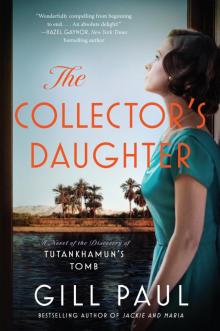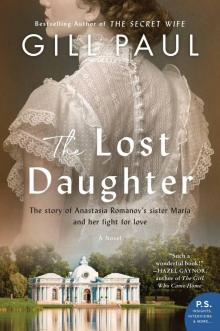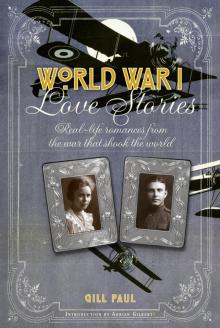The Secret Wife Read online
Page 11
Every day he strolled up to the Alexander Palace to deliver a letter to Trina and receive the one Tatiana had written for him. Afterwards he walked along the road outside hoping in vain for a glimpse of her. He often saw Tsar Nicholas cycling around on an old bicycle, wearing a workman’s jacket and cap like a country peasant. Sometimes he was chopping wood or breaking ice, but always his head was down and he did not notice Dmitri pass by. From the newspapers he knew that Nicholas and Alexandra were under house arrest to prevent them trying to retake the throne, but to Dmitri’s eyes it did not look as if they had any such intention.
The gates were patrolled by revolutionary guards, identifiable by their badges showing a factory worker carrying a red flag. Dmitri could tell they were inexperienced from the awkward way they held their fixed bayonets, and their jumpiness at any sudden noise: these were eager new recruits jumping on a bandwagon. Townspeople stopped to gawp through the fence and one whispered to him that the guards would take you inside the grounds for a glimpse of the family for a fee of twenty roubles. Tatiana had not mentioned this in her letters and the disrespect horrified him. It was as if they were exotic creatures in a zoo rather than monarchs from a centuries-old dynasty.
Spring came, the snow and ice began to melt and trees burst into leaf almost overnight. Every day he missed Tatiana more and his fears for her increased. Why had nothing happened? Still there was no word of when the ship might arrive to take her family to England and, unable to bear the suspense, Dmitri made an appointment to visit the British ambassador, Sir George Buchanan, in St Petersburg. He used his status as a member of the royal escort to gain admittance, which was risky, because identifying yourself as a Romanov acolyte was inadvisable in the current climate. It was better to be a worker. If anyone asked, Dmitri claimed to be a common soldier of lowly birth.
Recently his mother had written that his father had been questioned by revolutionary guards and told he might have to stand trial on charges that were not yet specified. How could a general who had earned so many medals for service to his country be under suspicion? Anyone wealthy or well connected seemed to be a target. Many of the Romanovs’ friends had been arrested: Anna Vyrubova, Alexandra’s lady-in-waiting, was being held in the Peter and Paul Fortress, and several members of the extended family were under house arrest in case they tried to help Nicholas regain his throne.
‘I’m afraid that the British Foreign Secretary has recommended that the Russian government make some other plan for the future residence of their imperial majesties,’ Ambassador Buchanan told him, peering through half-spectacles. ‘The difficulties of transporting them to London in wartime proved insurmountable. Besides, the new government are not keen for the Tsar and Tsarina to leave, since they are privy to so many of the country’s war secrets. You understand, there is nothing more I can do …’
Dmitri was horrified. ‘You must help! What will become of them without the aid of their British cousins? There are calls in the press for them to stand trial as traitors to their country. Who knows what might happen?’
The man shifted in his seat. ‘We will, of course, continue to apply pressure and ask that they are treated with humanity, but as a rule the British government tries not to interfere in the affairs of another sovereign nation.’
Dmitri felt a clenching of his gut, and a sense of dread that made his heart heavy as he left. If the British would not save them, then it was up to pro-monarchist Russians. He had located around twenty colleagues who promised to help but that was nowhere near enough to launch an armed rescue attempt and spirit the Romanovs out of the country. The railway workers were a militant bunch who would never allow them onto a train, and they had no hope of stealing a ship from the heavily guarded harbour. Besides, he remembered what had happened to Louis XVI of France and his wife Marie Antoinette after they tried to slip out of France in 1791 following the revolution there: they’d been intercepted, tried as traitors and beheaded. He shivered. If the Tsar and Tsarina were being accused of betraying their country, then it was important not to give the prosecutors any ammunition.
He did not tell Tatiana of his discovery, but he could sense from her letters that her mood was darkening.
The doctor tells us that Olga’s heart has been weakened by the measles, and Maria still cannot walk. I do my best to cheer the invalids by reading aloud to them, and in fair weather we take them out in wheelchairs to the formal gardens. We are allowed to wander deep into the wood, where it is quite wild. I avoid coming round the front of the house where people stare at us through the fence, but I would do so if I thought I would one day see your dear face there.
We have occasional visitors, but I do not wish you to become known to our revolutionary captors or else you might end up in prison, like poor dear Anna Vyrubova. How could they do that to a cripple? What treason could she possibly have committed?
Oh, Dmitri, I yearn for you with my entire soul. If we could but have five minutes alone … The thought of your passionate nature and fine mind, your sparkling eyes and strong arms, make me feel I can cope with anything so long as I am assured we will be together again some day soon.
Dmitri was encouraged to hear they were allowed to wander into the wood and it occurred to him that perhaps there was a chance he could meet her there. He borrowed a horse and rode around the edges of the palace grounds, looking for less well-defended points. He was able to make his way into Alexander Park through the graveyard for imperial horses and rode on past the farm to the woods, searching for a place where he might meet Tatiana. There was a gothic White Tower just five minutes from the front entrance of the palace, a place where servants used to sleep. It did not appear to be in use any more so he slipped inside and climbed the winding staircase to the sixth floor then walked out onto the turreted battlements. He could see across the park all the way to town. Would the guards let Tatiana walk that far? It was a short distance from the formal gardens. Perhaps she could try.
Rather than put his message into a letter, which might be intercepted, Dmitri asked Trina to tell Tatiana he would wait in the White Tower at ten o’clock each morning. If she was able to join him for a few minutes that would be wonderful, but he emphasised that she should not dream of putting herself in danger.
The next morning he got there at nine-thirty, hiding just inside the entrance to the tower in a spot where he could look along the path Tatiana would have to take. He did not have long to wait before he saw her strolling past the lake, stopping to pick wildflowers and placing them in a basket she carried over her arm. She was very thin, in a grey gown with a grey scarf tied over her head. Dmitri admired her elegant walk: she looked like a grand duchess even in peasant-style clothing. She bent by the water’s edge to pluck a white iris, checked the coast was clear, then scurried across to the tower’s entrance.
In an instant Dmitri pulled her into his arms and covered her face, her dear mouth, with kisses. ‘Oh my love,’ he breathed, but was unable to say any more. She still looked ill, her complexion pale and her cheeks hollow but there were no scars from the measles rash. He stroked her cheek with his finger and looked deep into her grey eyes, overwhelmed by the strength of his emotions.
‘I cannot stay long in case they miss me,’ she whispered, ‘but it is wonderful to see you.’
‘How are things in the palace?’ Dmitri asked. ‘Tell me the truth.’
She hesitated. ‘It’s full of drunken soldiers, smashing our precious belongings and carousing till all hours. There does not appear to be any discipline. Papa seems resigned to it and wanders round on his own without talking to any of us. Mama has taken to her bedchamber, where she works on her embroidery. I am the one who must raise everyone’s spirits and sometimes I confess it takes more energy than I can summon. But being here, with you, has revived me.’
‘I will be here every day at ten. And I am doing my best to secure your release.’
‘If only the British would hurry …’ she sighed.
Dmitri looked away. He couldn’t
bear to be the one to tell her the British were no longer planning to rescue them. Instead he asked how she passed her days.
‘Papa and I are planting carrots and summer vegetables in a plot near the palace. I enjoy working with the soil, although my nails are suffering.’ She held out her hands to show him, and he kissed each palm in turn. ‘And you? What are you doing?’
‘I have lodgings in town where I await news from the various quarters I am talking to about your rescue. But I often wonder if I should tell the new government of our marriage so I can be detained with you and stay by your side.’
‘No!’ she cried. ‘You mustn’t! We need you outside. If you joined us, you would be unable to help.’ She kissed his lips. ‘I love that you would be willing to give up your own freedom and of course it would be wonderful to see you every day, but for now it must be this way.’
‘Perhaps we can see each other more often. I will come to the Tower every morning and you should join me whenever it seems safe. Don’t take any risks, though.’
They had one last, lingering kiss before she turned to walk back into captivity with only a quick final glance. As she disappeared round the corner of the palace, it flashed into Dmitri’s head that this might be the last time he ever saw her, and the pain was like a stab wound. He couldn’t bear her to be in danger. He yearned to snatch her and ride off into the countryside, just keep riding till they reached safety. But she would never leave her family. That wasn’t an option.
A few days later Tatiana came to the tower again, and every few days after that, as spring turned to full-blown summer. The meetings sustained them: she was able to unburden herself and Dmitri could revel in the sheer exhilaration of being with her. Afterwards he relived every embrace, every tender word, and felt warmed by the certain knowledge of her love.
On the 12th of July, he was waiting in the White Tower when he saw her approach just as two revolutionary guards appeared from the other direction, their routes set to intersect. Dmitri could sense Tatiana’s confusion as she tried to decide what to do and he willed her to turn back, but it was too late.
‘Oy, who are you?’ one of them called out. Dmitri couldn’t hear her response but it seemed she told the truth because the soldier replied, ‘Your lot aren’t allowed over here. You shouldn’t be outside the palace courtyard. Get back right now, whore.’
Rage filled Dmitri with a red-hot fire. He had a knife in his belt and he was pretty sure he could kill the two of them before they were able to raise the alarm. Tatiana glanced quickly in his direction, shook her head almost imperceptibly, then turned and hurried back along the path to the palace. Dmitri was still shaking with rage that they should speak to her so insultingly. He watched closely as the men passed, memorising their faces, vowing that when the revolution was overthrown he would have them jailed.
When he rode round to the side gate to meet Trina, she had a hurried letter from Tatiana:
I was so sad not to be able to hold you earlier today, but in my daydreams I am pretending those soldiers did not stop me and we were together. I try to fill my head with joyful images and I wish you would do the same … I am sorry to say that we may not have another opportunity to meet at the tower because we were told this morning that we are leaving Tsarskoe Selo on the 31st of July. They have not said where we will be taken, only that we are heading south, so we hope the destination is Livadia. How wonderful that would be! We will take as much as we can, because who knows when we will return? Anyhow, my dearest one, I will write as soon as I know our destination in the fervent hope that I will see you there before too long. I love you with all my heart, now and always.
Dmitri made sure to position himself near the gates of the Alexander Palace from dawn on the 31st. It seemed word of the family’s move had leaked out because there were hundreds of people there, some of them jeering and calling names, others just come to gawp. The disrespect made him very cross, although he understood the desperation of the thousands upon thousands of starving families whose male breadwinner had been killed in the war. He saw an official emerge with a message for the guards and wormed his way close enough to hear that the royal party was being taken out of the west gate of the park on their way to the railway station.
He leapt on his horse and rode at speed to intercept them, arriving at the station just as they were disembarking from a convoy of shiny automobiles. His eyes sought Tatiana amidst the throng and found her at the exact same moment as she spotted him. He touched his fingers to his lips and blew her a discreet kiss and she did the same then folded her hands as if in prayer. Seconds later she had stepped up into a carriage and disappeared. He felt an enveloping sense of emptiness in his core and a foreboding deep within his bones.
Chapter Nineteen
Lake Akanabee, New York State, 12th August 2016
A violent storm swept across the lake one night and the rain woke Kitty at four in the morning, sounding like stones hurled from the heavens as it pelted on the tin roof. She lit her oil lamp and went to the door to watch. Trees were bending sideways in the wind, lightning forked across the lake and her fire pit had already filled with water. At least there didn’t appear to be any leaks in the walls she had patched.
The howling of the storm and the clattering on the roof were so loud she couldn’t get back to sleep, so she opened her great-grandfather’s second novel, Exile. Bob had brought all the novels round a few days earlier, neatly inscribed to him and his wife, Sue. Exile had originally been published in 1927 but this was an American reprint dated 1950. The writing was beautifully lyrical but the story was bleak. It told of a man who had been forced to leave his homeland, for reasons that are never explained. He arrived in a bright city full of corruption, where everyone was trying to sell something: drugs, useless modern gadgets, or themselves. She wondered if this was how Dmitri saw New York then remembered he had not arrived there till 1934. Maybe he was writing about Berlin. The man in the story is haunted by some wrong he has committed in the past. He falls in love with a beautiful woman but is unable to commit to their affair because of the damage to his soul, and in the end she leaves him.
One thing was for sure, Kitty thought, rubbing her eyes: this man understood depression. She’d never read a book that took you so deeply inside the head of a depressive and it was a disturbing experience, which was somehow mirrored by the cataclysmic weather. Dawn was breaking outside with a faint pink glow but still the rain hammered down, bouncing off the sun-parched ground, and the opposite shore of the lake was obscured by low-hanging cloud. Even at eight o’clock it was still so dark that Kitty needed to use her lamp for reading. She decided to drive to the vacation park coffeehouse for a latte and some human company. The novel had put her in a gloomy, introspective mood.
Jeff wasn’t there, but the coffeehouse was full of campers sheltering from the elements. Kitty found a corner and plugged in her laptop to charge, listening to the complaints of the holidaymakers who had hoped to go hiking, canoeing or rafting and instead found themselves with long hours to fill and squabbling children to entertain. The windows misted up with their breath and the loud babble made Kitty feel desperately lonely and, for the first time, homesick. No one paid her any attention as she opened her laptop. First she went to the Guardian website and read about the news back home and the issues that were concerning Guardian readers: government cuts, immigration; the usual stuff.
Her cursor hovered over her email icon and, steeling herself, she clicked to open it. One thousand eight hundred and seventy-five emails were waiting, she was told, and she sipped her latte as they began to flash into her inbox. Tom’s name was prominent among them – the name ‘Tom Fisher, Tom Fisher, Tom Fisher’ flashed past her eyes like strobe lighting – and her chest felt tight. Whatever he had to say, she wasn’t ready to hear it, but she couldn’t help noticing the email headings: ‘I’m so sorry’, ‘Please get in touch’, ‘Urgent – I need to speak to you’, ‘I will always love you’, ‘Please can we talk?’ She let her eye skim down the li
st but didn’t open any of them. There was a pain in her chest, beneath the ribs on her left side: a hard rock that nagged like a tumour. She tried taking a deep breath and letting it out slowly but the pain persisted. She put her hand over her heart and felt it beating more rapidly than usual and that made her panic. She couldn’t breathe.
Kitty yanked the plug from the wall and closed the laptop, tucking it beneath her arm as she squeezed past the huddle of campers, stepping over backpacks and small children to reach the exit. There was a yell of communal protest when she opened the door, letting in a gust of rain, so she stepped out into the squawl and closed it quickly behind her. She got behind the wheel of the car and pulled out of the car park but her heart was hammering too fast and her breathing was too jagged for her to drive. After a few hundred yards she pulled in to the roadside and bent forward, resting her head on the steering wheel.
What did it mean? Was Tom saying ‘I will always love you but I love Karren as well’? ‘I will always love you but I want a divorce’? What kind of love was he talking about exactly? A month had gone by since that morning when she checked the messages on his mobile phone but she wasn’t ready to hear from Tom yet; that much was obvious. She had been foolish to open the email account. It would take more time before she was able to deal with that situation and all its repercussions. It merely underlined her sense that her marriage had failed, that she had failed.
In her head she heard her mother’s voice berating her: ‘Why are you such a quitter? You take piano lessons then get bored; you start tennis coaching then don’t want to go back. You never stick at anything.’ Was it true that she was a quitter? She had stopped piano and tennis and drama and all those other extra-curricular activities because her mum had such high expectations; she had to be a prodigy at everything. When she rang home with the news she’d got a 2:1 in her journalism degree, her mum had commented, ‘What a shame. If only you’d done a bit more work …’ She could just imagine the deep sighs if her mum could see her now, hunched over a steering wheel, her heart overbeating with anxiety.

 The Collector's Daughter
The Collector's Daughter The Lost Daughter
The Lost Daughter Jackie and Maria
Jackie and Maria The Affair
The Affair Love...Maybe
Love...Maybe The Secret Wife
The Secret Wife No Place For a Lady
No Place For a Lady Another Woman’s Husband
Another Woman’s Husband World War I Love Stories
World War I Love Stories World War II Love Stories
World War II Love Stories